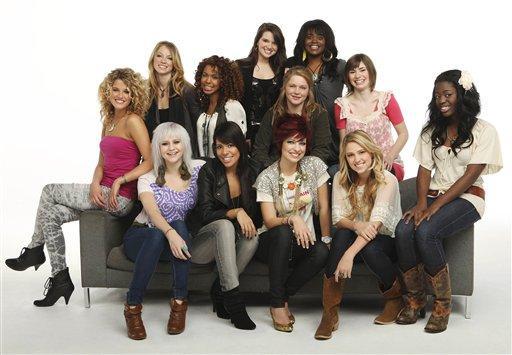I generally try to stay out of pop culture topics. It’s partially because it’s boring, but it’s mostly because I’m functionally pop-culture illiterate.But every once in a while I find a pop culture phenomenon so outrageous it deserves mention. It doesn’t happen often, but when it does, it gets my blood pressure up.So buckle up, boys and girls. It’s rant time.I don’t watch “American Idol.” By that I mean that I don’t look at the screen while it’s going on. But my roommates watch it, and it’s loud enough that I can hear it — which, because we’re dealing with what’s nominally a vocal talent show, should really be all I need, right?Right?I was minding my own business in my room during last week’s episode when I heard the show’s distinctive wail. Some woman was singing the standard unintelligable cacaphony of notes, and, as I listened, a creeping horror slowly dawned on me.She was singing “I Want to Hold Your Hand,” by the Beatles. Or, rather, she was using the lyrics to the song, but had chosen to forgo Lennon/McCartney’s distinticive melody entirely in favor of her own improvised vocal cartwheels.The judges, of course, ate it up. “I love the way you made that song your own!” the wide-eyed enthusiastic judge (whatever her name is) said.All I could think was that John Lennon was rolling in his grave, and that Paul McCartney was having a seizure somewhere. Even Ringo probably shivered.If you want to get technical, skill in “American Idol” is not judged the way it should be — the mystic blend of objective mastery and subjective grace that constitutes beautiful music. Instead, it’s a simple measurement — GPS, or Glissandos per Second.For those of you without music training, a glissando is a rapid slide of notes up and down a scale. Or, pretty much, anything you hear on American Idol ever.Music, as any real practicioner of the art will tell you, is the carefully honed skill of applying your own creative power to a specific, often mathematical framework. “Being muscially creative” doesn’t mean taking the lyrics of a song and putting them to an unintelligable cacaphony of jumbled half-notes and warbled semi-tones as a vaguely impressive, but ultimately meaningless display of talent. It means using the lyrics and melodies of a song together and re-interpreting them in minute, but creative and distinctive ways.Do I sound pretentious? Perhaps. But think of music majors — people who labor for hours every day to hone the difficult skills necessary to be a real musician. These people can move their instruments as well as — or better than — their own limbs. They can play every scale in sequence from memory at blinding speed and with perfect accuracy. They memorize whole suites of the most complex music known to man, engaging in a calculus of sound that is both masterful art and intellectual genius. And they do it all in cramped quarters for little money, because it is their passion, their beautiful obsession.Meanwhile, some two-bit schmuck with a good voice, a pretty face and maybe a compelling story gets launched into superstardom and millions of dollars.By the way — you know why your average pop superstar falls into a drug and depression-induced downward spiral within two years of finding fame? It’s because they seek, above all else, attention, and attention is a fickle, humanity-destroying mistress.”American Idol” is a summation of a great deal of what is wrong with our culture. It’s a shameless, quasi-religious glorification of pretty faces and “shining personalities.” It’s also a loud, blaring reinforcement of the truly American idea that everyone’s got that one burning fire of talent deep in their bones that just needs one good performance to shine out.What that really means in this case, of course, is “I may be just another average person, but one day I’ll be famous!””I just don’t want to work my whole life to really earn it!”
Matthew Albright is a 21-year-old mass communication junior from Baton Rouge. Follow him on Twitter @TDR_malbright.
__
Contact Matthew Albright at malbright@lsureveille.com
Nietzsche is dead: American idol an affront to music, American culture
February 28, 2010

In this publicity image released by Fox, the 12 female finalists for the ninth season of the reality singing competetion, “American Idol,” seated from left, Katelyn Epperly, Lilly Scott, Ashley Rodriguez, Lacey Brown, Janell Wheeler, Haeley Vaughn and, standing from left, Didi Benami, Michelle Delamor, Katie Stevens, Crystal Bowersox, Paige Miles and Soibhan Magnus, are shown.




